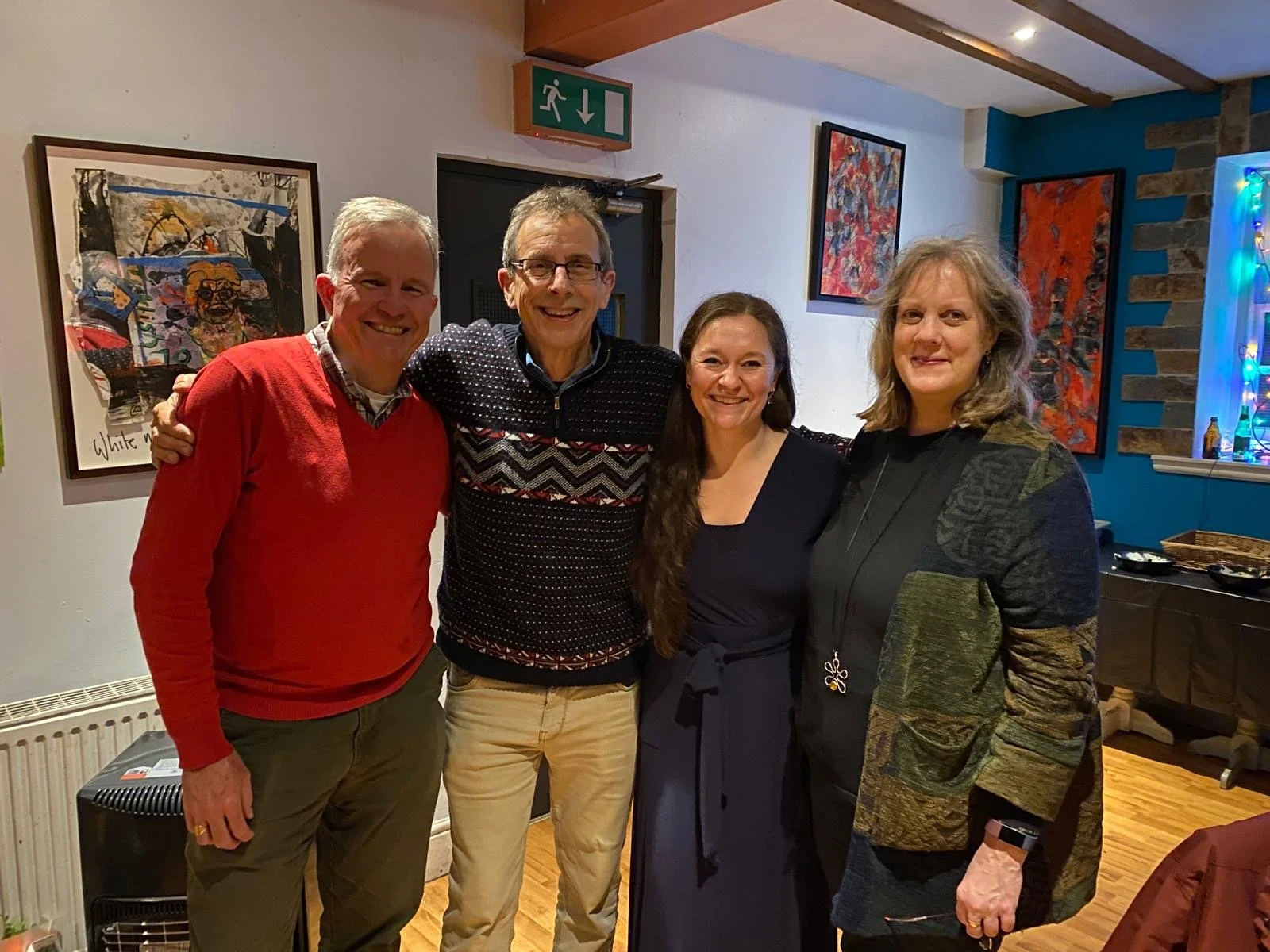In December 2024, Alex Pounds passed her Viva to successfully complete her PhD studies. In this blog article whe summarises the work that she conducted and the key findings
Alex poses with Jennifer, an Elder study participant
Improving food security is key to achieving the United Nation’s Sustainable Development Goal ‘Zero Hunger’, particularly relevant in in Sub-Saharan Africa (SSA)’s inland fishing communities. This thesis aimed to examine the role of fish in food security from multiple disciplinary perspectives to generate a wholistic appreciation. The research aimed to identify the cultural, nutritional, and economic value of fish in local diets using qualitative and quantitative methods. Methods included interviews, focus groups, household surveys, intrahousehold surveys, and food intake measurements. Additionally, Oral Histories methods with Elders and PhotoVoice methods with youths were employed to include older people and youths’ experiences and perspectives on food security, informed by participatory research frameworks. The study area was on the Kenyan shores of Lake Victoria, chosen for being the largest lake in SSA, its complex political and ecological history, and its large littoral (lakeshore) population who depend on its resource.
This thesis found that multiple methods indeed enhance our understanding of food security. While characterised by monotonous diets with an overreliance on nutrient-poor foods and poor dietary diversity, nutrient intake measurements showed adequate nutrient intake of commonly deficient micronutrients. These results were all-embracing, with little differences between gender or generation. Food security has worsened in the last 20 to 30 years, attributed to food commoditisation. Subsistence production was scarce, and people relied on income for food purchasing. As a result, the poor were a nutritionally vulnerable demographic. Differences in food security existed between economic classes, mainly concerning choice, food agency, and experiences of food security. The poor heavily relied on omena (Rastrineobola argentea), which is a small, low monetary value, but micronutrient-rich pelagic fish with disproportionate importance in worse-off diets. However, wellbeing is not limited to nutritional intake: poor people had negative subjective experiences of food security caused by omena overconsumption, its shameful association with poverty, and a lack of food agency. While the poor desired less omena, the rich desired more omena as it was increasingly recognized as a nutritionally dense food. Omena appears to be on the cusp of gentrification.
Local women, who dry and sell omena as a critical livelihood and food security activity
The indirect role of fish in food security was most obvious through livelihood generation. This population was on the precipice of a livelihood transition: while still dependent on fishery livelihoods that are decreasingly sufficient due to overfishing, people were beginning to look and aspire to other industries. Due to the need for cash for food purchasing, people increasingly sought out and respected jobs that were reliable income sources. This need for household income has challenged traditional women’s labour roles that restricted them to the homestead. But despite the increased need for income for food provisioning, gender inequalities had persisted and were limiting women’s income-earning potential. While the community continued to rely on fisheries for economic activity, women were marginalised in the fish value chain, limited to processing jobs. They were largely limited to omena processing and marginalised from higher-value activities. Omena was not valuable enough to trade for other equally valuable food. Yet, the omena-drying business directly supported household food security because omena was retained for household consumption. This was not true for participation in fishing, which was not correlated with any food security indicators.
Finally, this research discovered that locals viewed emergent aquaculture as a ‘modern’ version of fishing, rather than a distinct or competing industry. They identified several benefits to large-scale fish farms, mainly concerning employment opportunities and auxiliary economic benefits. Emergent aquaculture was characterised by large-scale tilapia cage farms driven by international investment; however, local entrepreneurs felt inspired to begin smaller-scale pond farming. While aquaculture supported food security indirectly through employment, its direct effects on local fish provisioning was limited, as most locals purchased wild fish that were sourced from the lake. Farmed fish were only affordable by wealthier people around the lake and thus was not directly supporting the local food security of the poor. The role of aquaculture in food security was primarily through economic pathways rather than direct provisioning of food.
In summary, this thesis has identified the need for targeted interventions to advance the food security of Kenyan littoral communities around Lake Victoria. Gendered approaches within the fisheries and aquaculture value-chains are required for household-level improvements in both income and food security. Furthermore, this thesis calls for more holistic research concerning food security in other littoral communities in SSA. These types of studies and interventions are critical in achieving our global quest for ‘zero hunger’ for Lake Victoria’s littoral communities in Kenya.
Banner Image - From left to right: Anton Immink (ThinkAqua CEO who helped facilitate and support the research); Prof. Dave Little (University of Stirling, Aquaculture, Supervisor); Dr Alex Pounds; Prof Sam Punch (University of Stirling, Sociology, Co-Supervisor)



